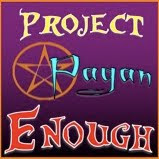How would you feel if you could limit which of your children or grandchildren would inherit your money, based on the religion or culture of the person they marry? For example, your children or grandchildren marry folks who are the same religion that you are, and they can inherit; they marry someone who isn't, and they don't inherit. (Leaving aside the question of whether any of us will have enough money to support ourselves in our older age, much less leave it to anyone else.)
Is this a legitimate way to support your values with your money, even after you're gone? Is this a way to try to practice discrimination after you've died? Is it a way to try to protect or support your shrinking religion?
Does it feel different if the religion is:
- Christian?
- A particular denomination? Baptist? United Church of Christ?
- Muslim?
- Jewish?
- Quaker?
- Pagan?
I welcome folks' thoughts.







2 comments:
Hm.
I think there's a lot to say here.
For starters, I pretty much reject the notion that people have the right to inherit, in general. I think inheritance of property is a natural thing to have in a society, and yet at the same time, I think it's deeply pernicious. I've never bought the arguments against inheritance taxes: so much of modern society is a giant wealth transfer from poor and middle-class to rich that, well, I don't see "after you're gone, we'll reverse a lot of that transfer" as a bad thing.
Leaving all of that aside...
I think it's important to place this within a contemporary society in which we expect people to evince their values in their wills. My will gives money to AFSC and ACLU. (I really need to rewrite it, actually, to give money to MCC instead.)
So, within that framework, well, I don't know. Bequests to charities routinely specify very specific restrictions: universities have to figure out how on earth to live, decades later, within the scope of bequests. So in that sense, bequests of this form, well, they bother me less than perhaps they might, given that money given to a charity is *going* to go to people as a consequence, and potentially to people with a specific ideological or religious category.
All of that said, I think it's truly tacky. If someone really wants their money going to Jews, they should give it to their local JCC, say, not to their grandkids contingent on their having married a Jew, say. I don't know, though, that I think it's inappropriate as a will restriction. There are already so many.
"All of that said, I think it's truly tacky. If someone really wants their money going to Jews, they should give it to their local JCC, say, not to their grandkids contingent on their having married a Jew, say."
That really is a much more practical way to put one's money where one's values are, isn't it? Aside from the propagation issue for Jews, which I know you understand.
What's particularly interesting about all this for me, is that it brings into focus how ingrained a lot of my attitudes towards inheritance are, and how culturally-influenced. (One thing I didn't put in this entry, for example, is, "What if you could inherit only if you married another Italian?"; Judaism being both religion and culture.)
When I first read of Max Feinberg's will, I had mixed reactions: on one level, culturally, it made total sense to me; on another, religiously, I found it completely bass-ackwards.
So in the unpacking of it, I've been discovering my own inconsistencies in my underlying attitudes. This is useful, and also kind of interesting. I'm glad for the opportunity in a context that's not so emotionally charged as, say, writing my own will, which I do need to revise before too long...
Thanks for writing, dan!
Post a Comment